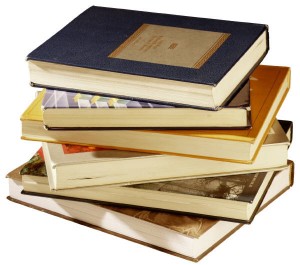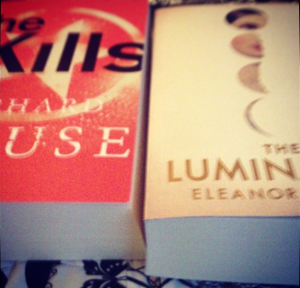 I listen to a lot of bookish podcasts and one of my favourites is The Readers. This week on The Readers they talked about Comforting vs. Confronting Reading which got me thinking. So I thought I would try to articulate my response about Confronting Reads. I read a lot of confronting books and I have been thinking about why I do this for a while now. When The Readers spoke about this topic I thought it was time to blog about it.
I listen to a lot of bookish podcasts and one of my favourites is The Readers. This week on The Readers they talked about Comforting vs. Confronting Reading which got me thinking. So I thought I would try to articulate my response about Confronting Reads. I read a lot of confronting books and I have been thinking about why I do this for a while now. When The Readers spoke about this topic I thought it was time to blog about it.
One of the reasons I like confronting reads has something to do with my interest in transgressive fiction. I like to understand the mind-set of flawed characters and how their minds work. I have an interest in psychology, while I doubt I’ll ever fully understand it completely. It is the same reason why I like TV shows where the men always make mistakes. There is something about getting into the mind of someone who is making mistakes so you don’t have to.
Consider this; if you read Lolita by Vladimir Nabokov, Tampa by Alissa Nutting, The Yearning by Kate Belle, Me and Mr Booker by Cory Taylor and other books with similar themes, does that make you more likely to be a paedophile? I think not. Reading is an emotional experience and if you are part of the suffering and the mistakes of the protagonist, then you probably don’t want to experience it in a more extreme and realistic way. For me, I read about serial killers because I want to understand why a person would have that desire to kill without having first hand experience. Does that make sense or am I missing something here?
There are also many other reasons to read a confronting book; most of these books are satirical and are trying to send a message. Look at Tampa, not only is this a disturbing look at a female sexual psychopath, it is also a look at the schoolboy fantasy of an older woman or the fantasy of getting a boy before he has been corrupted by society; trying to show the reader that these fantasies are extremely damaging. A young boy is not developed enough to handle a purely sexual relationship with an older woman without getting attached or if you get a man before he is corrupted, you are just doing the corrupting.
I find a confronting novel far more enjoyable, I like the macabre and I like a darker plot, but most of all I like that satirical messages in these book (read my post on Satire if you still think it is meant to be humorous). The lessons learnt and the experiences had, may prevent me from making the same mistakes. I’ve made plenty of bad mistakes in my past and the consequences are not pretty. I much rather someone else experience them while I enjoy the book with a cup of tea in my hand. What do you think about confronting reads? Are there more reasons to read them that I haven’t covered here? Let me know in the comments.


 When you think about the holidays, you tend to associate memories to those locations; the foods you ate, the sights you saw, the moments in your life that are special. I’m not sure if I’m a little different or if there are others but I also associate a book or two with the holidays. Now I was away in Adelaide recently and I got to thinking about this and wondered which books I might associate with this trip.
When you think about the holidays, you tend to associate memories to those locations; the foods you ate, the sights you saw, the moments in your life that are special. I’m not sure if I’m a little different or if there are others but I also associate a book or two with the holidays. Now I was away in Adelaide recently and I got to thinking about this and wondered which books I might associate with this trip. I wanted to talk about hardcovers and paperbacks because I’m interested to know people’s thoughts on the topic and because Australians do things a lot differently to the rest of the world. Most books (outside Australia) have a hardback release and normally about a year later the paperback comes out. Obviously paperback release often changes and it does depend on popularity and many other factors. Why release a novel in paperback if we can charge more for the hardback edition?
I wanted to talk about hardcovers and paperbacks because I’m interested to know people’s thoughts on the topic and because Australians do things a lot differently to the rest of the world. Most books (outside Australia) have a hardback release and normally about a year later the paperback comes out. Obviously paperback release often changes and it does depend on popularity and many other factors. Why release a novel in paperback if we can charge more for the hardback edition?

 I’ve talked a little about
I’ve talked a little about  Want to be the next Shakespeare? Forget literature. Shakespeare wasn’t trying to write enlightened literary fiction. He was writing the Elizabethan equivalent of daytime television – easily digestible, relatable stories (mostly stolen from elsewhere and given a quick spit and polish to make them look and sound new) that would appeal to an audience of mostly illiterate working-class people. He didn’t care about being a great artist or creating work that would last for centuries. He just wanted to make money.
Want to be the next Shakespeare? Forget literature. Shakespeare wasn’t trying to write enlightened literary fiction. He was writing the Elizabethan equivalent of daytime television – easily digestible, relatable stories (mostly stolen from elsewhere and given a quick spit and polish to make them look and sound new) that would appeal to an audience of mostly illiterate working-class people. He didn’t care about being a great artist or creating work that would last for centuries. He just wanted to make money. People are talking about the changes to the Man Booker Prize and I thought I would weigh in as well. I’ve already talked about
People are talking about the changes to the Man Booker Prize and I thought I would weigh in as well. I’ve already talked about  I’m not a non-fiction reader, much to my own disappointment. A few of the non-fiction books I have read have been good and the book that inspired me and turned me into a reader was in fact a non-fiction book. Recently I’ve been inspired with an idea; this idea will require a lot of non-fiction reading and research. So I need to motivate myself in becoming a bigger non-fiction reader.
I’m not a non-fiction reader, much to my own disappointment. A few of the non-fiction books I have read have been good and the book that inspired me and turned me into a reader was in fact a non-fiction book. Recently I’ve been inspired with an idea; this idea will require a lot of non-fiction reading and research. So I need to motivate myself in becoming a bigger non-fiction reader.